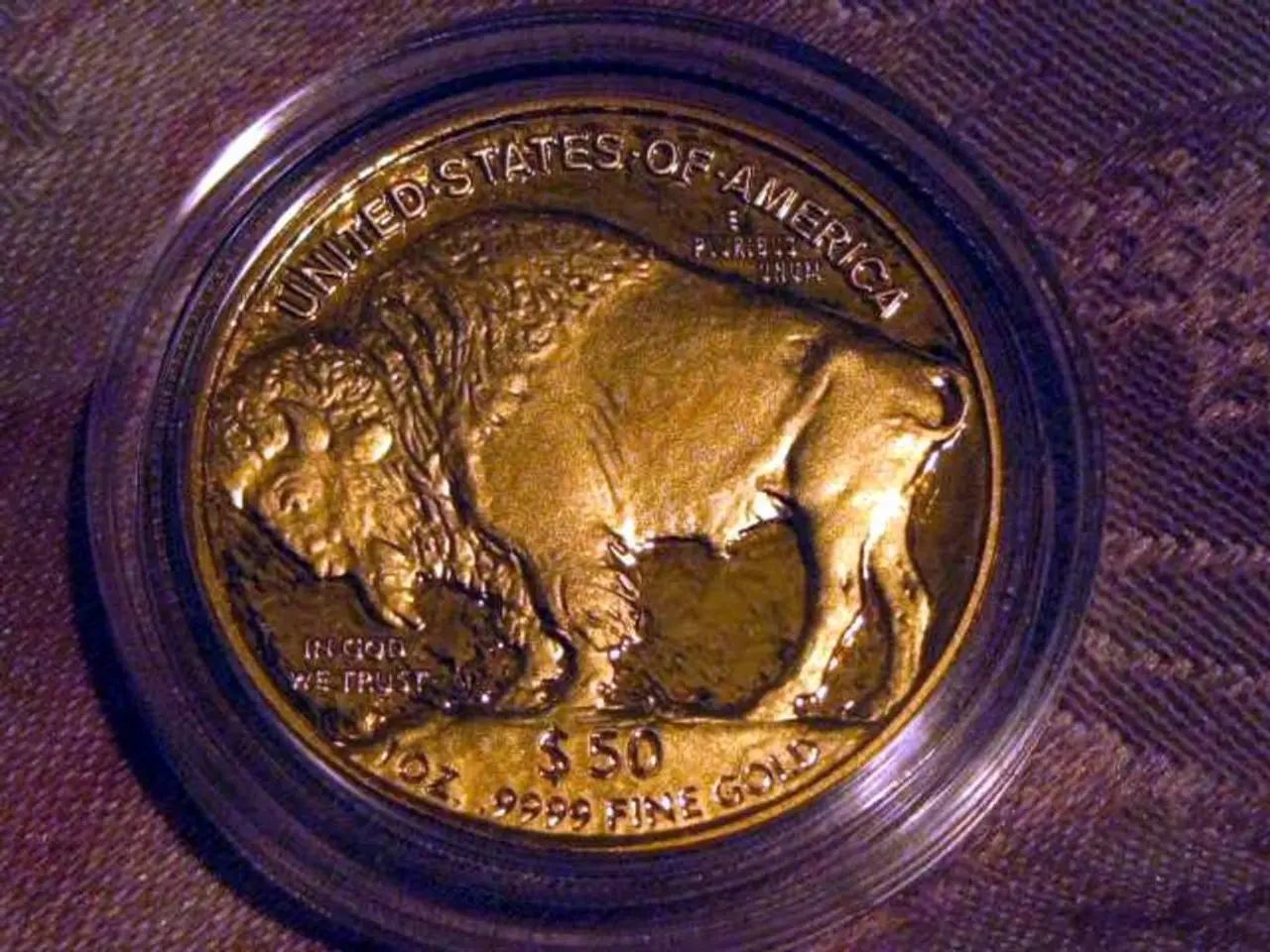Stock prices of Sterling surge to two-week peak following divided Bank of England vote
The Bank of England (BoE) has cut its Bank Rate by 25 basis points to 4% in a closely divided vote, with a 5–4 margin, at the August 2025 Monetary Policy Committee (MPC) meeting. This move marks the third reduction in 2025 and reflects easing inflationary pressures amid stagnant UK growth and external trade challenges, such as US tariffs.
In a more cautious tone, the BoE signaled a slower pace of future rate cuts, expressing concerns about underlying wage growth and inflation dynamics remaining above the 2% target. Inflation has moderated to around 3.5%, with pay growth slowing but still elevated, and the BoE remains vigilant about inflation risks.
The rate cut and the cautious outlook have contributed to pressure on the pound against both the US dollar and the euro. Market participants typically view interest rate reductions as decreasing the return on pound-denominated assets, which can weaken the currency. However, the divided MPC vote and slower easing signal may moderate the pound's decline.
Michael Brown, senior research strategist at Pepperstone, indicated that the BoE maintained a gradual and careful guidance regarding future policy easing. Commerzbank FX strategists believe that the current situation is good news for the pound, as a rate cut at the September meeting now seems highly improbable.
In the currency markets, the pound was unchanged at $1.345 at 1124 GMT. Sterling was stronger against the euro, which eased 0.2% to 86.59 pence. The pound rose by 0.7% against the dollar on Thursday, its biggest one-day rally in 11 weeks, and is on track for a 1.3% rise this week.
Looking ahead, Commerzbank FX strategists predict that the next rate cut could occur in November, but question its likelihood if inflation remains high. According to Michael Brown, the direction of travel for rates is lower, and he believes another rate cut may occur this year. However, the conviction behind a rate cut vote has waned a little bit.
In other news, the U.S. President Donald Trump announced a temporary choice for a fill-in Federal Reserve governor, and the dollar was stronger across the board on Thursday, but headed for a weekly loss. The pound neared a two-week high versus the dollar on Friday.
In conclusion, the BoE is easing monetary policy cautiously, responding to disinflation and economic stagnation, and this impacts the pound negatively against major currencies but with some moderation due to the hawkish undertone in communication.
- Trader Michael Brown, from Pepperstone, conveyed the Bank of England (BoE) maintained a cautious approach towards future policy easing.
- The rate cut by the BoE and the signaled slow pace of future cuts have created pressure on the pound, particularly against the US dollar and the euro.
- In the finance industry, Commerzbank FX strategists suggested that the next rate cut might occur in November, but question its likelihood if inflation remains high.
- The BoE's monetary policy decisions, influenced by inflation concerns and the banking-and-insurance sector, impact the business of trading in the currency markets.




